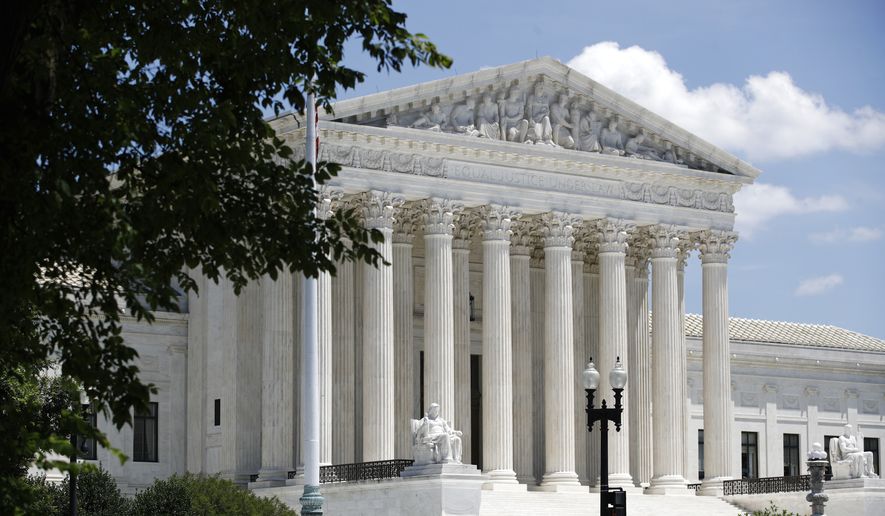President Biden’s decision to end the COVID-19 emergency order this week won’t sway his pending Supreme Court case over forgiving millions of student loan borrowers who he claimed needed financial help due to the pandemic, legal experts say.
The president on Monday signed a resolution ending the emergency orders, which were put into place by former President Donald Trump on Jan. 31, 2020.
The emergency declaration gave the government sweeping authority to issue restrictions due to the public health emergency. Many of those moves have been winding down and were set to expire next month.
“The end of the COVID emergency order is earlier than expected, but it was still supposed to end before the completion of this Supreme Court term. Due to this predictability I don’t think the end of the emergency order will have much of an impact, but I’d be quite surprised if the loan forgiveness program survives,” said Adam Feldman, Supreme Court scholar and creator of the Empirical SCOTUS blog. “The loan forgiveness program was already on shaky ground.”
The high court heard arguments over Mr. Biden’s student debt plans Feb. 28, and a decision is expected by the end of June.
The federal government had cited the COVID emergency for the president’s authority to forgive the $400 billion in debt. Twenty-six million Americans have applied for relief, and 16 million have been approved. The relief is on hold while the high court deliberates.
The Biden administration announced its plans last year that the federal government would cancel up to $20,000 of student loan debt per borrower. Education Secretary Miguel A. Cardona pointed to provisions in the Heroes Act that allow a “waiver or modification” of loans when a national emergency affects borrowers’ ability to repay. The Heroes Act was initially signed into law in the wake of the Sept. 11, 2001, attacks to aid members of the military.
Mr. Cardona said the pandemic was so disastrous that it demanded full forgiveness for millions of students.
The issue came before the court during arguments in two cases against Mr. Biden’s student debt forgiveness plans.
The first case was brought by a group of Republican-led states arguing that the president has no unilateral authority to forgive roughly $400 billion in debt. The other case was brought by two borrowers who said they were left out of the sweeping debt forgiveness plan or were not able to claim all the benefits.
The crux of their complaint is that the president’s move runs afoul of the Constitution and federal law.
The administration focused its defense on the plaintiffs’ lacking standing — or sufficient legal injury — to bring the lawsuits.
Jonathan Turley, a law professor at George Washington University, said the focus on standing was due to the administration’s knowledge the emergency order would be coming to an end during the high court’s term.
“The administration focused on challenging the standing of the parties because it was not eager to have the court reach the merits. There are a number of glaring problems in the use of the Heroes Act for this purpose. The use of the pandemic was only one of the glaring artificialities of the government’s case,” he said.
Indeed, during oral arguments, the majority of the court showed skepticism for giving the federal government sweeping powers.
Ilya Shapiro, senior fellow and director of constitutional studies at the Manhattan Institute, said government lawyers could argue the emergency declaration was in place when the forgiveness was ordered and COVID-19 had already caused harm to borrowers.
“I don’t think it changes the result — a justice who was otherwise on the fence isn’t now going to say the order is illegal — but it will add rhetorical ammunition to the eventual opinion,” he said.
The cases are Biden v. Nebraska and Department of Education v. Brown.
• Stephen Dinan contributed to this report.
For more information, visit The Washington Times COVID-19 resource page.
• Alex Swoyer can be reached at aswoyer@washingtontimes.com.




Please read our comment policy before commenting.